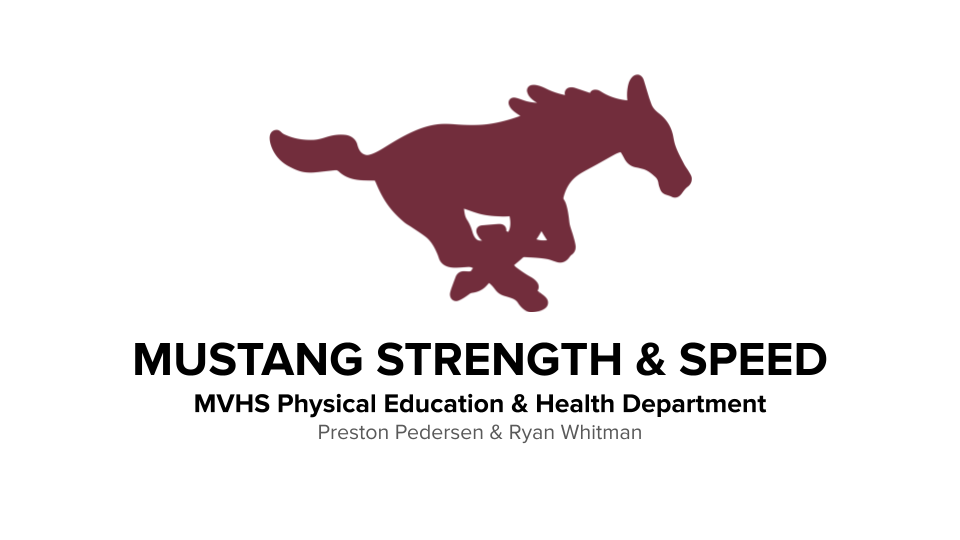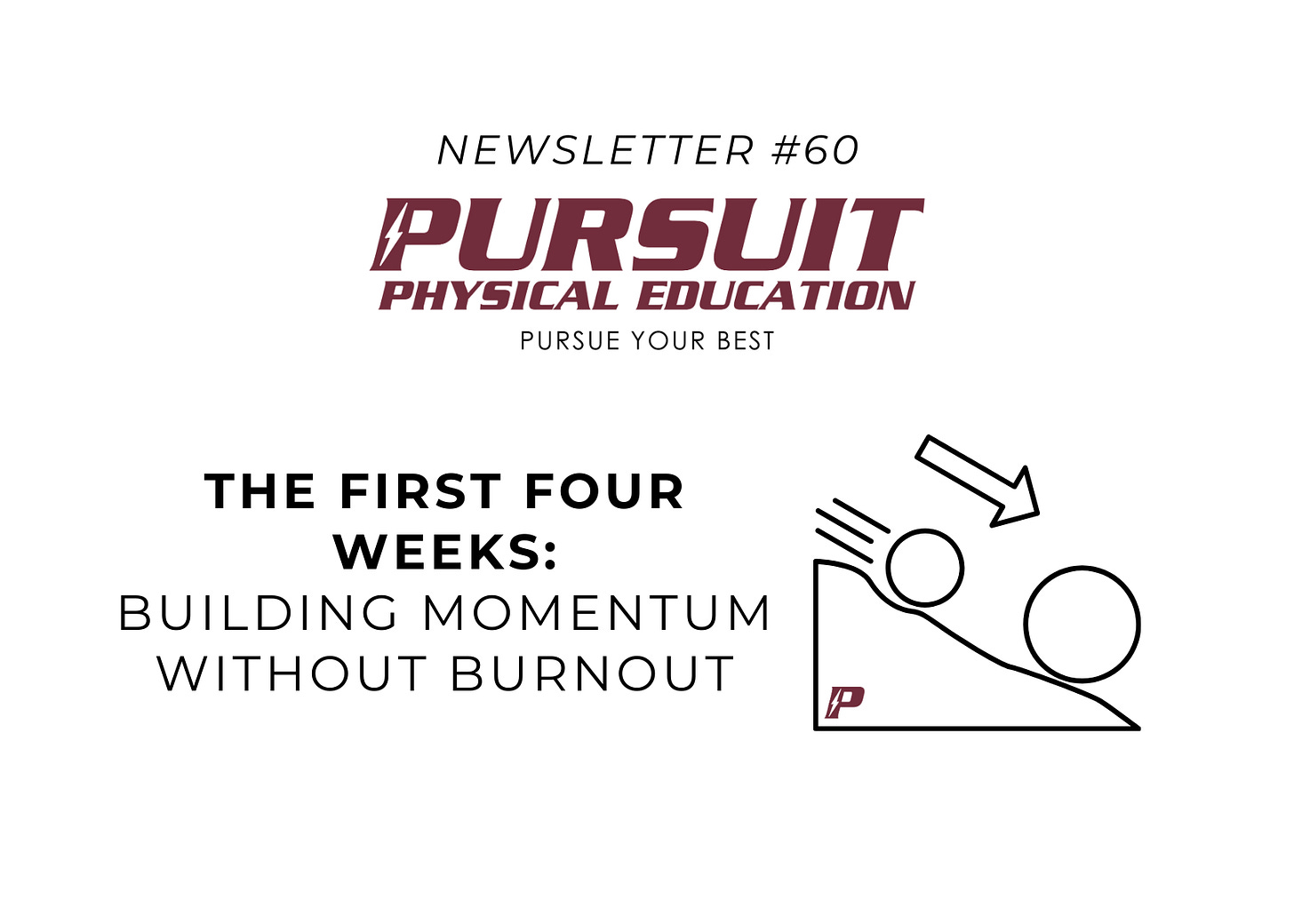The First Four Weeks: Building Momentum Without Burnout
#60 - Strength & Speed Coaching - Pursuing Your Best ⚡️
Happy Labor Day! Sorry for the delayed edition. With our first week of school and our first game, family time took precedence. I hope you enjoy this conclusion to our 4-part series: Strong Starts. Please reach out if you have any questions!
Strong starts don’t happen by accident.
We’ve covered:
But once the introductions are over and the standards are set, the real test begins: the first month.
How you pace, teach, and reinforce the first four weeks sets the rhythms for the entire year. Push too hard, and you’ll burn kids out. Go too easy, and you’ll lose momentum.
The goal is to build confidence, competence, and consistency—all while keeping the spark alive.
Why the First Four Weeks Matter
Habits form fast. How you handle routines in the first month will be how athletes handle them late in the semester.
Attention is highest. Early on, student-athletes are tuned in—make the most of it by teaching core movements and expectations well.
Energy is fragile. Push too much volume or intensity too soon and athletes disengage. Push too little and they wonder if it matters.
Think of the first month as a foundation: strong enough to support growth, but flexible enough to adapt.
The Four-Week Framework
Here’s how we think about it at Mustang Strength & Speed:
Week 1 – Belonging & Basics
Emphasize presence, relationships, and learning routines.
Teach warm-ups, spotting, equipment flow.
Wins = every athlete feels like they belong and can be successful.
We call this week Intro week.
Week 2 – Standards in Action
Layer in more structure. Reinforce standards daily.
Begin adding intensity and variety to training.
Wins = athletes can explain and demonstrate non-negotiables without prompting.
This is the first week that we have folders and our first 4-week cycle.
Week 3 – Skill Windows
Introduce higher-skill lifts and speed mechanics while attention is still fresh.
Small teaching blocks (5–7 minutes) on form, posture, or sprint technique.
Wins = athletes see progress in movement quality, not just load.
This is the first week that things start to feel smooth (policies, procedures, and routines are in place).
Week 4 – Rhythm & Progression
Establish the cadence you’ll carry all semester (warm-up → training → recovery/close).
Wins = athletes leave Week Four feeling stronger, sharper, and motivated for more.
This will be the last week of their first 4-week cycle. We will check folders during Week 5.

Watch the Warning Signs
Even in a well-paced first month, you’ll need to keep your eyes open:
Energy crashes: too much too soon. Always have new ways to engage kids (kickstarters, small games, conversation starters, thing that can “mix it up”.
Sloppy standards: you introduced them, but didn’t reinforce them daily.
Boredom cues: if athletes check out, it’s usually a sign the “why” isn’t clear enough.
Why This Matters for the Whole Year
If you get the first four weeks right, the rest of the semester feels smoother.
Routines run themselves.
Athletes trust your pacing.
Standards don’t need constant re-teaching.
Progress feels steady, not stop-and-start.
And when challenges come mid-year (injuries, scheduling, fatigue), athletes will have the confidence and consistency to handle them.
What’s Next
This closes out our Strong Starts series.
Up next, we’ll pivot into a new series — but before we do, I want to give paid subscribers a practical tool to put everything from this series together:
📌 Our full Mustang Strength & Speed Syllabus & Quiz.
These are the exact documents we use to align student-athletes, parents, and administrators each year. Use it as a model, adapt it to your own program, and make it fit your culture.
Keep pursuing excellence,
Preston
Pursuit PE ⚡️
This Week’s Paid Subscriber Resource
Upgrade your subscription to Pursuit PE to unlock this tool ⤵
Mustang Strength & Speed Syllabus & Quiz
Our complete class syllabus, used at Mount Vernon to set tone, build alignment, and communicate expectations from Day One. Includes vision, standards, structure, attendance, evaluation, and communication framework. You can use it as a template or as inspiration for building your own.
Not a paid subscriber yet? Upgrade today to unlock this and all upcoming resources.





